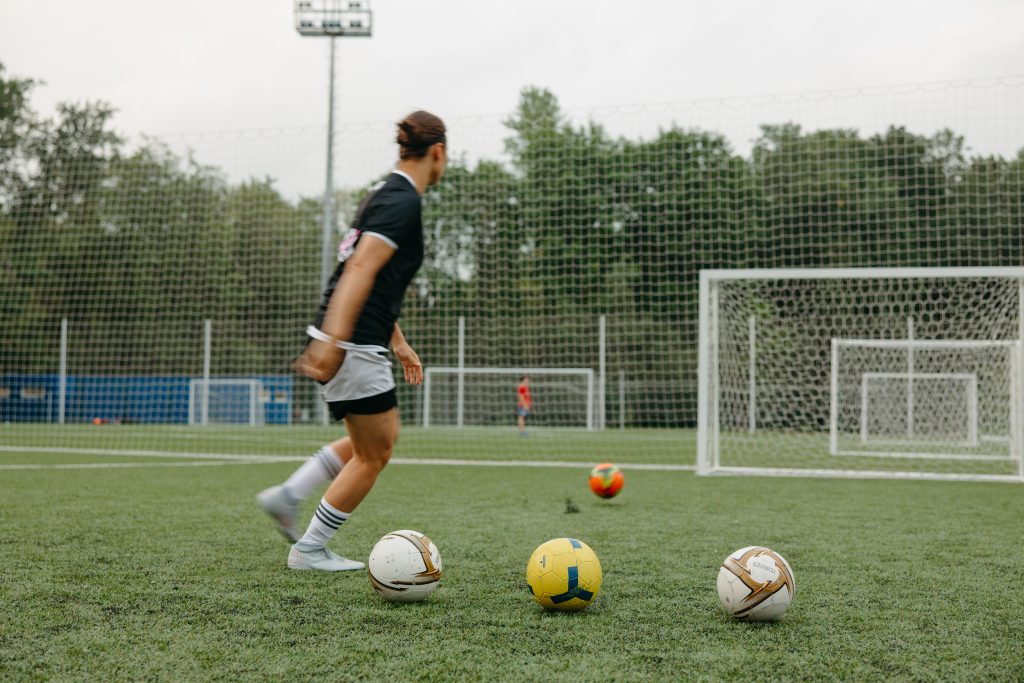College football players are require to participate in internships during their college tenure. These internships, which can last from one semester to all four years, have significant benefits for both students and the colleges themselves. Internships offer an experience for potential 20-year-old applicants later in life and allow students to explore different interests that may not otherwise be available to them.
However, there has been a growing concern surrounding the lack of academic focus of many college football players in these internships. Does this level of academic success benefit or harm the sport? What steps should be take so that we can better understand and evaluate these relationships? Read on to learn more about how these internships work and what they mean for the future of academics in college football.
Internships and the college football player
College football players are require to complete internships during their college tenure. These internships, which can last for one semester or all four years,
have significant benefits for both the student and the college itself. Internships give students an opportunity to explore different Cric Gator interests that may not be available in a classroom setting and allow them to prepare for their future career or graduate school options.
However, there is a growing concern among some people that these internships do not provide as much academic focus as they should. Does this level of academic success benefit or harm the sport? What steps should be taken so that we can better understand and evaluate these relationships? Read on to learn more about how these internships work and what they mean for the future of academics in college football.
It’s easy for small businesses with limited resources to outsource SEO services. With over 80% of marketers saying they will use search engine optimization (SEO) methods like pay-per-click (PPC) advertising, outsourcing SEO is a wise decision for small companies that want to grow their business.
What are the benefits of internships for students?
College football players are required to participate in internships during their college tenure. These internships, which can last from one semester to all four years,
have significant benefits for both students and the colleges themselves. Internships offer an experience for potential 20-year-old applicants later in life and allow students to explore different interests that may not otherwise be available to them.
Internships also benefit the colleges that host these players by providing a high quality of student-athletes. The NCAA’s Academic Progress Rate (APR) measures the academic performance of teams across Division I sports programs. A team with a higher APR is more likely to receive
an invitation from the NCAA to bowl games or play in conference championships.
Additionally, participating in an internship allows students to explore new ideas and careers
that they may not otherwise have access to as college athletes. This gives them greater flexibility and choice at the end of their playing career, allowing
them to pursue something more interesting than playing football professionally afterward.
However, there has been a growing concern surrounding the lack of academic focus of many college football players in these internships. Does this level of academic success benefit or harm the sport? What steps should be take so that we can better understand and evaluate these relationships?
What are the benefits of internships for colleges?
Internships are a great way for students to tap into their potential while they’re still in school. They give students the opportunity to explore new subjects, gain skills that can transfer to future careers, and even figure out what they want to pursue after graduation.
Internships also give the opportunity for college football players to explore different interests
that may not be available if they weren’t already playing football. College football players can take on internships that allow them to experiment with other majors or simply find a new passion.
Internships offer significant benefits for both colleges and student-athletes alike,
but there is also an issue of academic focus amongst some college players. This is something that needs further
evaluation as it has the potential to impact not just college Cricgator sports, but academia as a whole.
What are the implications of these internships on the sport?
Today’s college football players are require to take an internship during their time in college. These internships have been a lifelong dream for many and the chance to get experience that can monetize and combine with a post-graduate degree. But there is an increasing concern that these internships don’t provide students with the appropriate focus on academic success.
These internships provide students with valuable life experience and experience
they can put on a resume, but what happens when this experience doesn’t translate into academic success? There has been debate surrounding whether or not these internships have a negative impact on the sport of college football.
One possible solution is to better understand the relationship between these internships and academic achievement. With that understanding, colleges could then take steps to make sure students are taking advantage of this opportunity.
How should we evaluate these relationships?
Internships for college football players have multiple benefits for the players and colleges themselves,
with the possible exception of academic success. Most internships last from one semester to all four years, and offer experience, a chance to explore different interests,
and less stress on students’ academic careers. We should be prepared to evaluate these relationships, but it is not yet clear what steps we could take to better understand and evaluate them.
Conclusion
There are many benefits for college football players to internships, which can ultimately lead to job offers. The sport has a lot to gain from these relationships, but it also needs to be aware of how these internships
may affect the future of the sport. One possible implication is that student-athletes may be pulled away from the sport and that could potentially be harmful to the long-term future of the sport.





More Stories